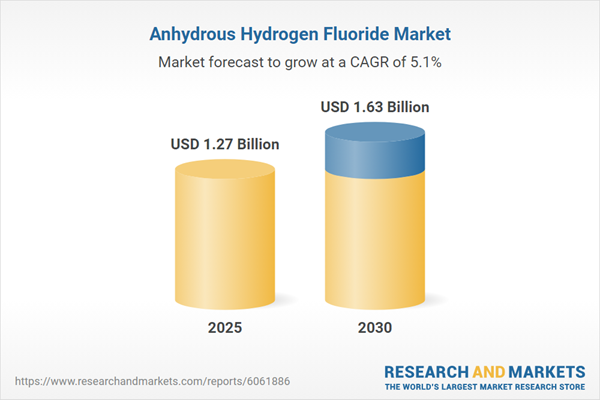Anhydrous hydrogen fluoride (AHF) is a colorless, corrosive liquid or gas that serves as a fundamental chemical in the production of fluorine-based compounds, including refrigerants and plastics. Its hazardous nature poses risks of severe burns from skin contact or inhalation. To safeguard both human health and the environment from its harmful effects, it is essential to adhere to proper handling, storage, and safety protocols.
The refrigeration industry's shift towards more environmentally friendly alternatives has significantly increased the demand for AHF. This compound plays a vital role in the production of hydrofluorocarbons (HFCs) and hydrofluoroolefins (HFOs), which are commonly used as working fluids in air-conditioning and cooling systems. Consequently, companies are ramping up investments in HFC and HFO technologies. This trend aligns with global initiatives aimed at reducing greenhouse gas emissions, highlighting AHF's importance in developing sustainable cooling solutions.
According to the American Chemistry Council, global chemical production is projected to grow by 3.5% in 2024, fueled by growth in the Asia/Pacific region, the former Soviet Union, and Africa/Middle East. Europe has rebounded from a downturn in 2023, while Latin America faces contraction due to inflation and structural issues. Continuous growth of 3.1% is anticipated for 2025.
Growth Drivers for the Anhydrous Hydrogen Fluoride Market
- Expansion of the Aluminum Industry: The growth of the aluminum industry is a key driver for the anhydrous hydrogen fluoride market. AHF is crucial for producing aluminum fluoride, which is necessary for aluminum manufacturing via electrolysis. The rising demand for aluminum from major end-users is expected to spur ongoing market growth, as AHF supports global industrial advancement and the transition toward sustainable, lightweight materials.
- Rising Use of Fluorinated Chemicals: The increasing application of fluorinated chemicals is propelling growth in the anhydrous hydrogen fluoride market. AHF is a critical fluorine compound used in synthetic processes to create fluorinated chemicals for pharmaceuticals, agrochemicals, and specialty chemicals essential for medicine production, crop protection solutions, and advanced materials. The growing demand across healthcare, agriculture, and various industries has led to a consistent rise in AHF requirements.
Geographic Outlook for the Anhydrous Hydrogen Fluoride Market
- North America as the Fastest-Growing Region: North America is projected to be the fastest-growing region during the forecast period. Countries such as the U.S., Canada, and Mexico are major consumers of AHF, primarily for refrigerant and aluminum production. Stricter environmental regulations in these regions are driving demand for more sustainable and eco-friendly refrigerants, further increasing AHF utilization.
Reasons for buying this report::
- Insightful Analysis: Gain detailed market insights covering major as well as emerging geographical regions, focusing on customer segments, government policies and socio-economic factors, consumer preferences, industry verticals, other sub- segments.
- Competitive Landscape: Understand the strategic maneuvers employed by key players globally to understand possible market penetration with the correct strategy.
- Market Drivers & Future Trends: Explore the dynamic factors and pivotal market trends and how they will shape up future market developments.
- Actionable Recommendations: Utilize the insights to exercise strategic decision to uncover new business streams and revenues in a dynamic environment.
- Caters to a Wide Audience: Beneficial and cost-effective for startups, research institutions, consultants, SMEs, and large enterprises.
What can businesses use this report for?
Industry and Market Insights, Opportunity Assessment, Product Demand Forecasting, Market Entry Strategy, Geographical Expansion, Capital Investment Decisions, Regulatory Framework & Implications, New Product Development, Competitive Intelligence.Report Coverage:
- Historical data & forecasts from 2022 to 2030
- Growth Opportunities, Challenges, Supply Chain Outlook, Regulatory Framework, Customer Behaviour, and Trend Analysis
- Competitive Positioning, Strategies, and Market Share Analysis
- Revenue Growth and Forecast Assessment of segments and regions including countries
- Company Profiling (Strategies, Products, Financial Information, and Key Developments among others)
The Anhydrous Hydrogen Fluoride is analyzed into the following segments:
By Type
- Industrial Grade
- Technical Grade
By Base
- Amines
- Amides
By End User
- Chemical
- Pharmaceutical
- Electronics
- Oil & Gas
- Metallurgy
- Others
By Geography
- North America
- USA
- Canada
- Mexico
- South America
- Brazil
- Argentina
- Others
- Europe
- United Kingdom
- Germany
- France
- Spain
- Others
- Middle East and Africa
- Saudi Arabia
- UAE
- Others
- Asia Pacific
- China
- Japan
- South Korea
- Australia
- India
- Indonesia
- Thailand
- Others
Table of Contents
Companies Mentioned
- Honeywell International Inc.
- Solvay
- Linde plc
- Arkema
- Lanxess
- Navin Fluorine International Limited
- Fubao Group
- Foshan Nanhai Shuangfu Chemical Co., Ltd
- Foosung Co Ltd
- Fluorchemie Dohna GmbH
Table Information
| Report Attribute | Details |
|---|---|
| No. of Pages | 142 |
| Published | February 2025 |
| Forecast Period | 2025 - 2030 |
| Estimated Market Value ( USD | $ 1.27 Billion |
| Forecasted Market Value ( USD | $ 1.63 Billion |
| Compound Annual Growth Rate | 5.1% |
| Regions Covered | Global |
| No. of Companies Mentioned | 10 |









